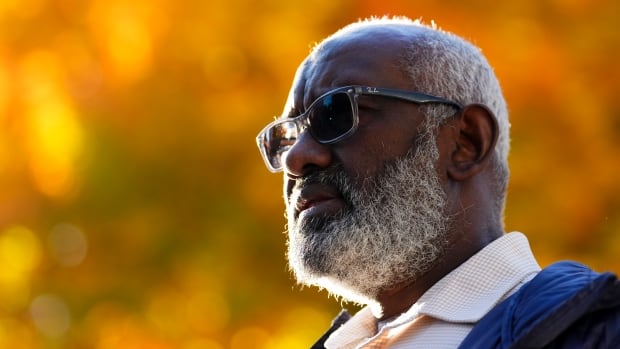More than two decades after Abousfian Abdelrazik was imprisoned in Sudan, a former diplomat who worked on the case says he still doesn’t know whether the Canadian government asked for the Montreal man’s detention.
Scott Heatherington, who served as director of foreign intelligence at Foreign Affairs, testified Friday in Abdelrazik’s $27 million lawsuit against the federal government over his ordeal abroad.
Abdelrazik, a Sudanese-born Canadian citizen, claims Ottawa arranged for his arbitrary imprisonment, encouraged his detention by Sudanese authorities and actively obstructed his repatriation to Canada for several years.
The 62-year-old was arrested in Sudan during a 2003 trip to visit his mother. Court has heard he was interrogated while in custody by Sudanese officials and Canadian Security Intelligence Service agents about suspected extremist links. He has denied any involvement in terrorist activity.
Abdelrazik returned to Canada six years later after the Federal Court ruled that Ottawa had breached his constitutional rights by refusing to give him an emergency passport.
Heatherington testified Friday that Foreign Affairs had heard from Sudan’s security service that Abdelrazik was only being held because Canada had asked that he be detained.
“This was a bit of a shock,” Heatherington said.
CSIS has denied making that request.
The question of whether Canada played a role in Abdelrazik’s detention is a crucial aspect of his case.
A federal lawyer asked Heatherington Friday if he has a “final understanding” of whether someone from Canada asked that Abdelrazik be detained.
“To this day, I don’t know,” he responded.
Diplomats worried about consular services
Heatherington also testified about a frustrating period when Sudan would not confirm to Canada’s foreign service that it had detained Abdelzaik. CSIS, which was investigating Abdelrazik as a terrorist threat, was informed before Foreign Affairs officials were that he was in prison.
CSIS officials were the first representatives of the Canadian government granted access to Abdelrazik to question him.
Heatherington testified that while he wasn’t pleased by the sequence of events, allowing CSIS to have first access was “the only way” for his department to get to Abdelzaik.
“I thought this was the the way forward and eventually we did get consular access to him,” he said.
“Was I happy about it? No.”
Abdelrazik’s lawyer has argued in court that CSIS was working to disrupt efforts by consular staff on Abdelrazik’s behalf.
Testifying last week, a former CSIS official denied those allegations and said CSIS can’t prevent Foreign Affairs staff from providing consular services.
“Obviously you can’t prevent them, but you can scare them. You can keep giving them inflammatory labels about Mr. Abdelrazik,” said Abdelrazik’s lawyer Paul Champ as he cross-examined the CSIS official.
“You can tell them that Canada will be criticized if he gets released and he does something. And to do all that to influence Foreign Affairs in their decision-making. That’s what the service was doing, correct?”
The former CSIS official, whose identity was kept confidential during the court hearing, said that was not the case.
Champ has called Abdelrazik “one of the last remaining casualties of the war on terror.”
Lawyers for the federal government have rejected claims that the Crown breached its duty of care to Abdelrazik, or that any such breach contributed to his alleged imprisonment, torture and abuse.
Abdelrazik’s civil trial had been set to begin in 2018 but was adjourned pending a review of emails, memos and other documentation related to the case under the Canada Evidence Act.
Heatherington will return for cross-examination on Monday.


